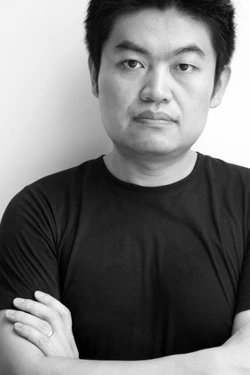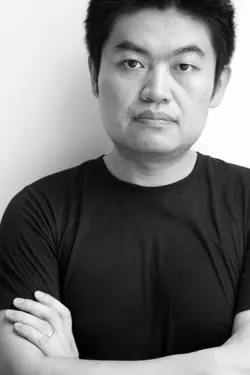
TAO - Trace Architecture Office
North 3rd Ring, West Road No.43, Beijing, China
Projets de TAO - Trace Architecture Office
Voir tous les projetsÀ propos de TAO - Trace Architecture Office



Profile
The founder and principal of TAO (Trace Architecture Office), Mr. Hua Li received his M. Arch. Degree from Yale University in 1999 and his B. Arch. Degree from Tsinghua University in 1994. He has worked at Westfourth Architecture and Herbert Beckhard Frank Richlan & Associate in New York. In 2003 he returned to China and started his own practice in Beijing. Since 2004, Hua Li has taught at Central Academy of Fine Arts and has been a visiting critic at School of Architecture in Tsinghua University. In 2009, he established TAO. Hua Li’s design works and have been published by numerous architectural media including T+A, WA, domus, AREA, A+U, MD, Wallpaper, Abitare, Arquitectura Viva(AV), Casabella, and Space.
TAO was founded by Hua Li in Beijing. It is a design studio committed to architecture, urban, landscape, Interior, and furniture design. TAO is critical at architecture as an obsession to fancy forms in the context of media based globalized consumerism and becoming either fashions or dogmas. We are interested in exploring ontological and essential meaning of space and tectonics in architecture, and concerned with its social and environmental impacts. The subjects such us sense of place, response to climate, material and construction method, efficient use of resource, are explored in each TAO project with its specific context.
Philosophy
Space
Space is a memory, discovery and inspiration. It is definitely not just a rational term defining functions. Space is perhaps most powerful aspect in architecture which can challenge our unconsciousness to our existence condition. Inspiring space can ask us questions: where you are? How you want to exist? So to create spaces which can provoke our curiosity and doubts is the most profound mission for architecture.
Tectonics
The construction is the essential means of realizing architecture. Thus, architecture is not just abstract but physical and material. The tectonics should obey an order following laws of nature, instead of arbitrariness relying on technologies. In this, there are three things important: 1. Authenticity----a quality which resists the dislocation of meaning. It reveals the essence of things; 2. Clarity----a desire of expression of true logic in structural and material although it may not be completely achieved visually; 3. Here and now—--a respect to “gravity” of our existence in sense of place and time. Architecture belongs to specific site and context in both environmental and cultural sense, we should work with limits and discover the solution with a creative mind.
Feeling/Thinking
Beauty is not dead. Also “beauty can not be created overnight” (Kahn). Beauty is always there, waiting to be discovered by man, only the way of seeing beauty is transforming constantly. This is a belief in feelings, rather than thoughts. If thoughts are the shadows of our feelings — always darker, emptier, simpler (Nietzsche), then we should really be suspicious to the abusing power of any concepts in name of intellect. Beauty thus exists in silence.
Time
Doing architecture, we are anticipating the future, but with our memory. Architecture is a dramatic meeting between past and future, while has to be realized by present means. Thus Architecture belongs to a time, but it can also go beyond its time. Architecture without style,
Publications
2005/6 T+A, Non-place, liquid, boundary, skin---design works of Hua Li
2006 domus and 78 Chinese Architects/ Designers
2007/7 WA, design works and interview with Hua Li
2008/6 T+A Changmeng Care Center Dining Hall, Beijing
2008 Architects -- Made In China
2009/3 AREA(China) Perception of Hua Li’s “Universal Architecture”
2009/12 MD(Germany) Exemplary Metamorphosis
2010/7 A+U Li Hua/TAO Architect’s Office-- Refurbishment of a Warehouse
2011/1 T+A Museum of Handcraft Paper, Yunnan
2011/5 domus Rebuilding of XiaoQuan Ethnic Elementary School
2011/6 Architectural Journal Trace of Construction, Museum of Handcraft Paper
2011/6 Casabella China Tale, Gaoligong Museum
2011/7 Urban China The Aboriginal Architecture
2011/7 Architectural Journal Micro-city, XiaoQuan Ethnic Elementary School
2011/9 Space(Korea) Museum of Handcraft Paper
2011/10 Abitare(China) Mini City
2011 AV MONOGRAFÍAS Nº150. MADE IN CHINA
Exhibitions
TAO’s practice---- Origin and Presence
Streetacre City, East Village,
Holistic Realm: Landscape/Urbanism/Architecture,
2011 Chengdu Architectural Biennale
Domus talk series, Lecture: Architecture-Rebuilding of Memory, Beijing, 798, 2011/10
Architecture Odyssey, Lecture at CAFA School of Architecture, Beijing, 2009/11
Rock Chair, Un_Natural Exhibition, Beijing, 2009/04
In-Site Architecture, Forum of Biennale by AREA China, Beijing, 2008/10
Post Residential Culture, Domus talk series, Lecture: In-between Living, Beijing, 2008/07
Thoughts About Reconstruction, Forum on “Rebuilding after the Wenchuan earthquake in Sichuan”, Chengdu, 2008/06
The 2nd Architecture Biennale Beijing, “The works of the International Young Architects and Students”, 2006/10


